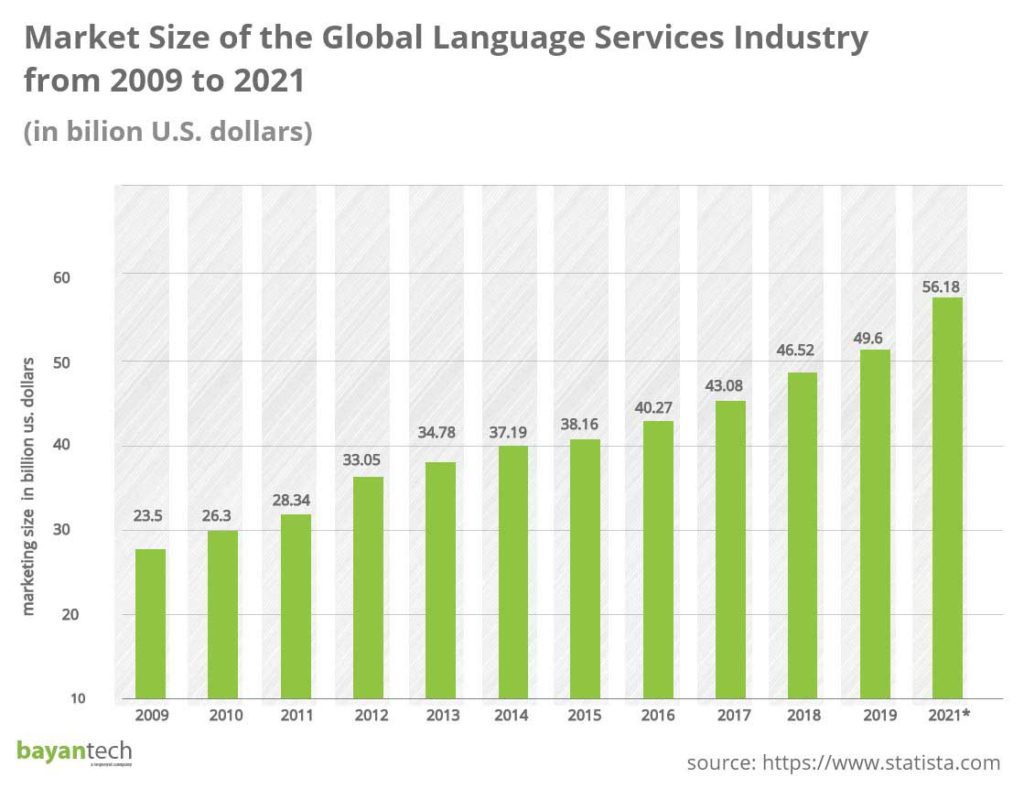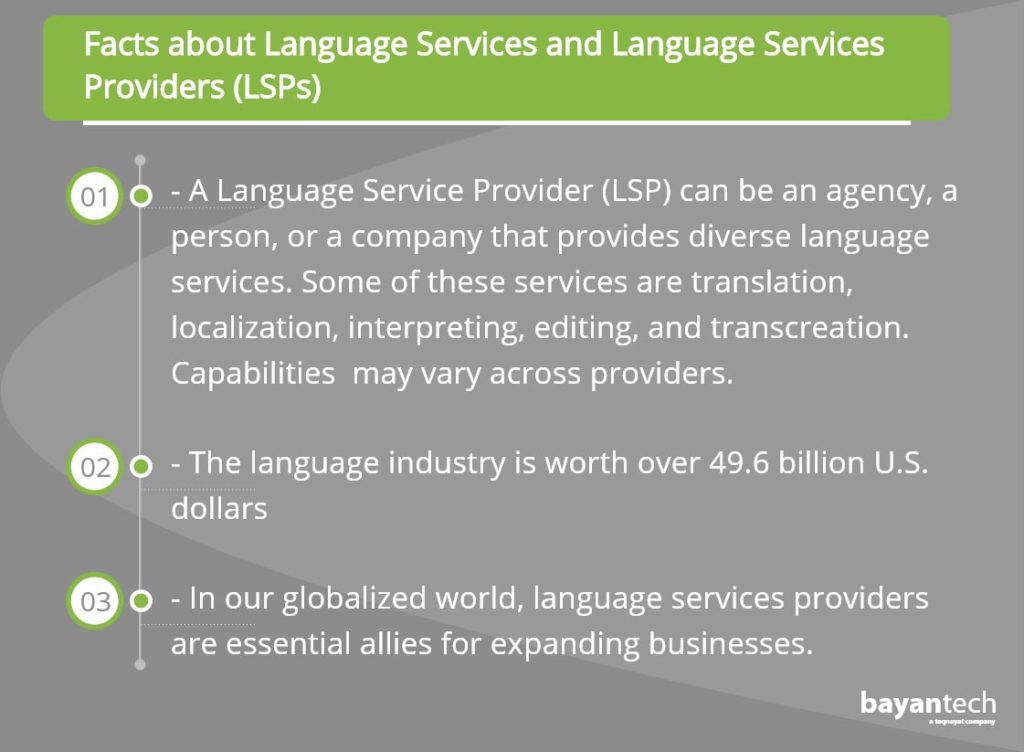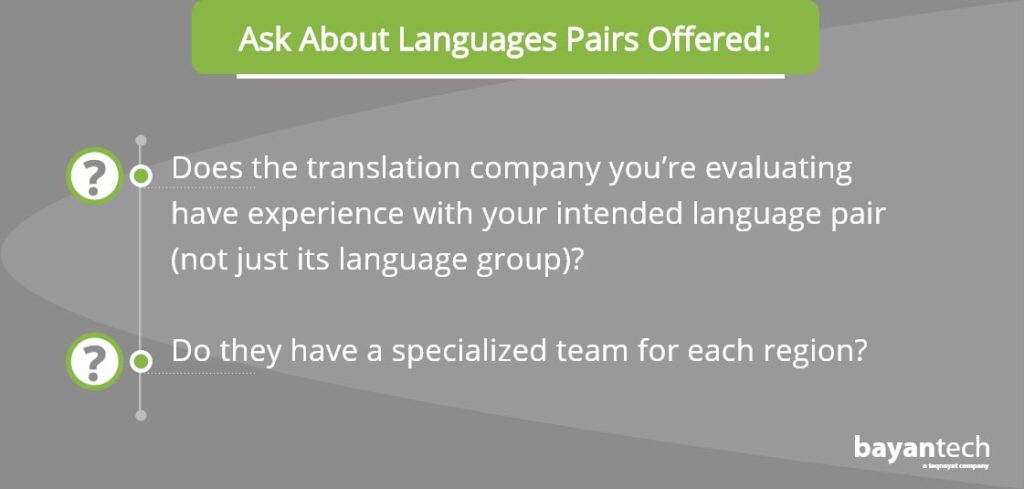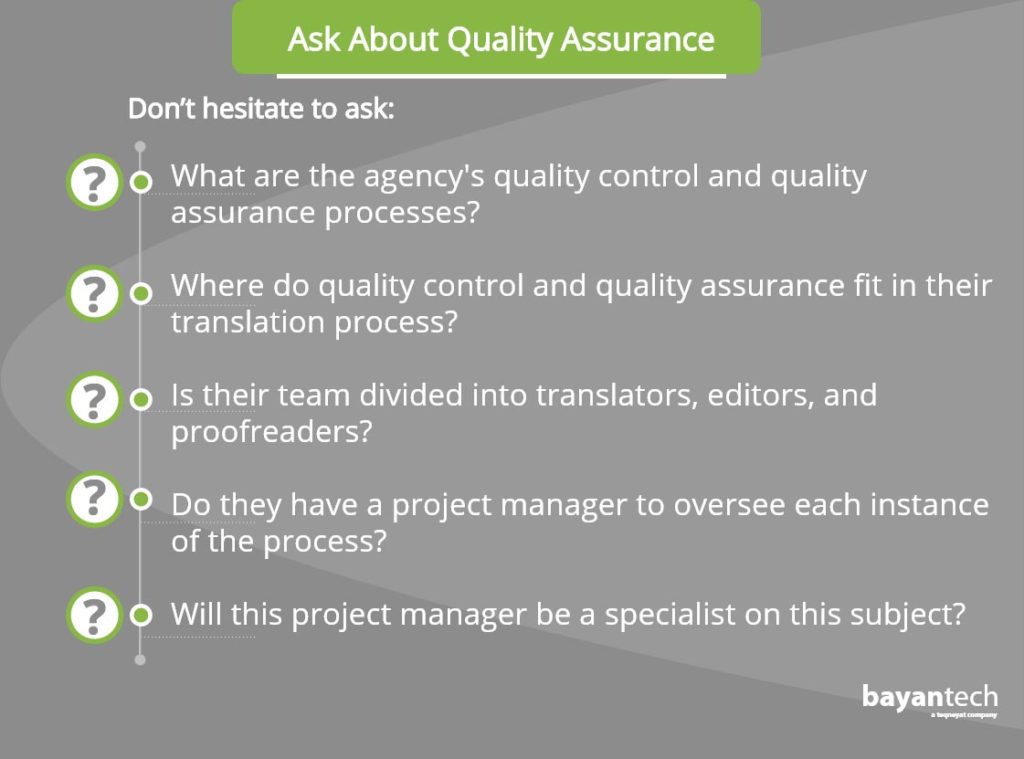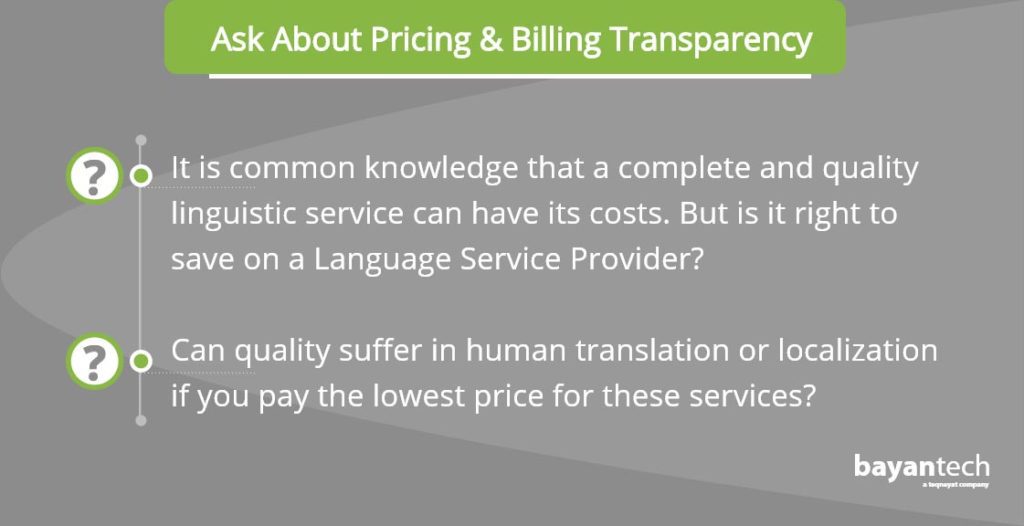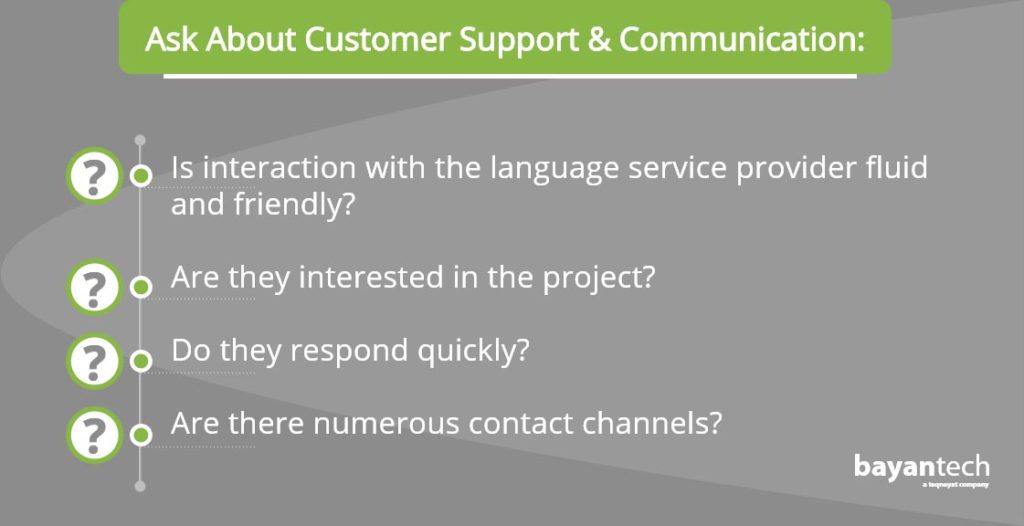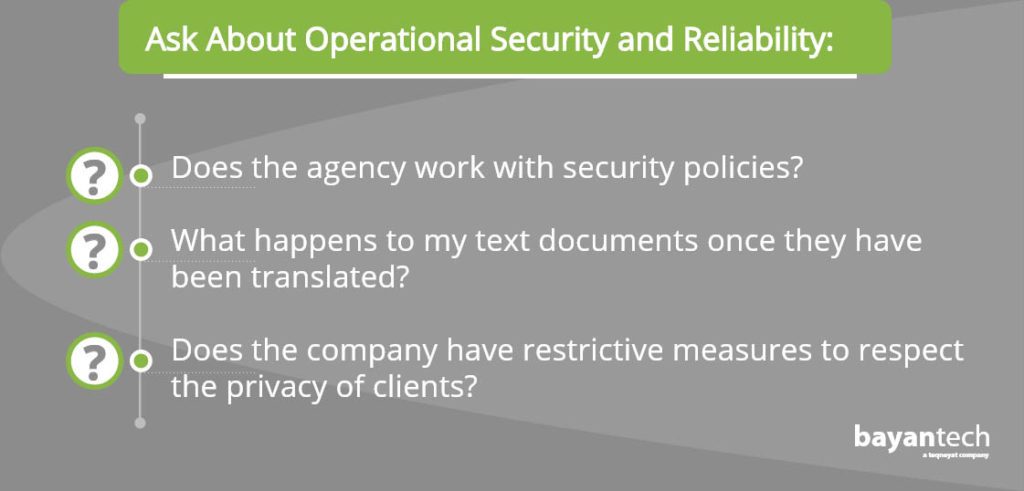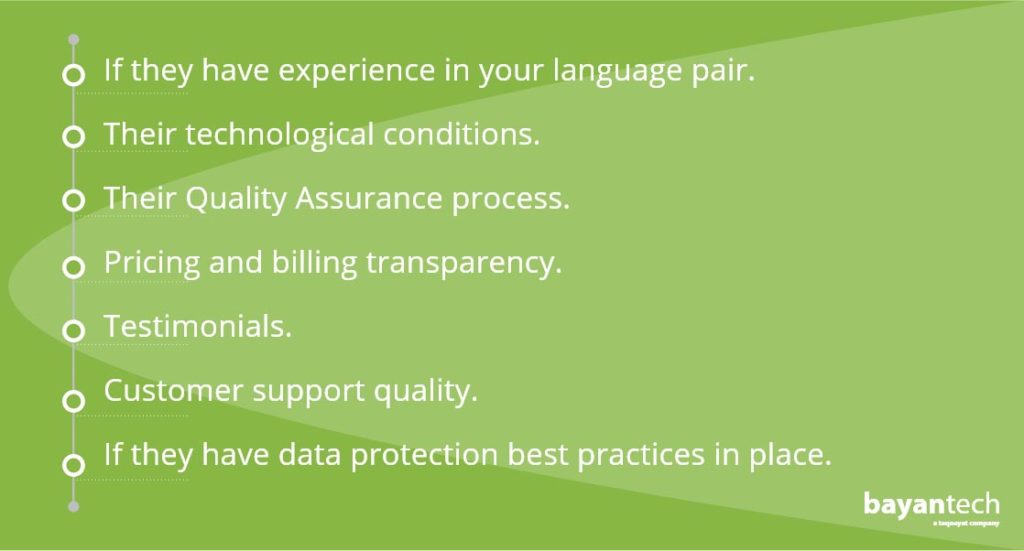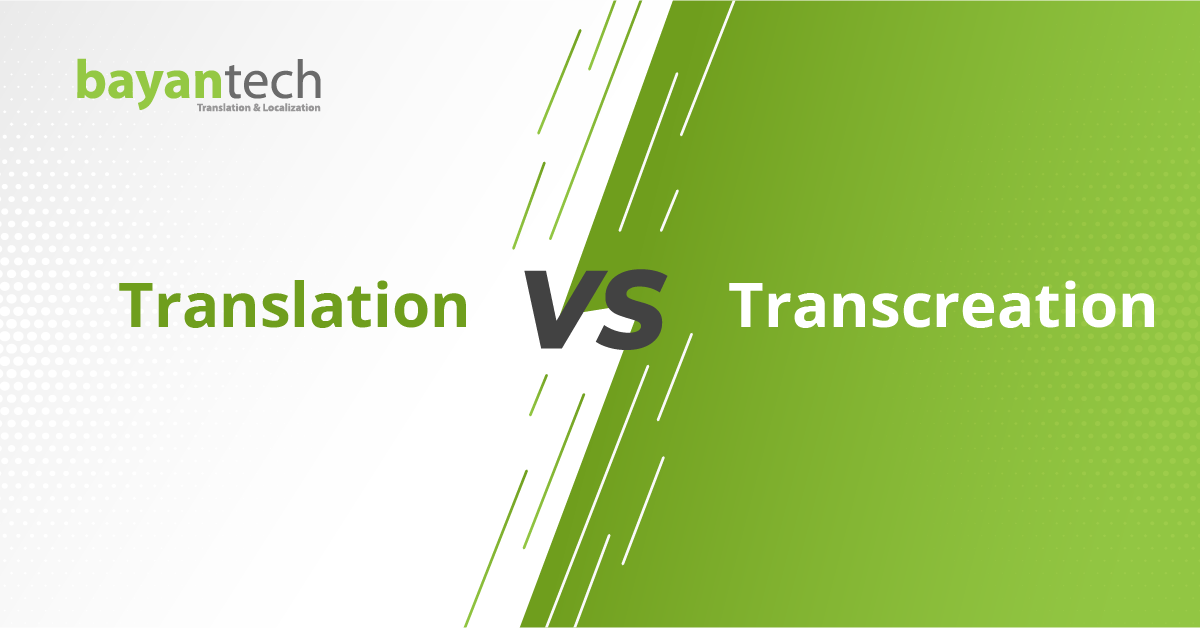Since the advent of globalization, companies of all sizes are seeking to position themselves as market leaders outside their home country. Logically, the possibility of having a global reach implies greater profits, more ambitious product development, and wider brand recognition. Communication plays a fundamental role in the optimal development and execution of an international expansion strategy. And, who can facilitate cross-cultural communication better than a language services provider?
The need to communicate clearly starts even before you enter your target market. If you’ll enter through an alliance with a local market leader, you’ll probably need to conduct negotiations and exchange strategic and legal material with them. A poorly translated document or a gesture of cultural insensitivity can delay or truncate your entry plan.
Once you’ve entered your new market, translation and localization failures can degrade your brand image. And, consequently, make you the mockery of both potential customers and competitors. Behind the international brands that talk to us in our language, there’s always a professional team of marketers and linguists.
In today’s global economy, language service providers or LSPs are vital business allies. And it shows. According to Statista, the global language services provider market has seen rapid growth. The market has doubled in size during the last decade. And last year, it reached a total value of 49.6 billion U.S. dollars.
A Language Service Provider (LSP) can be an agency, a person, or a company that provides diverse language services. These services are usually translation, localization, interpreting, editing, and transcreation, among others. Capabilities may vary across providers.
While language services providers usually face their largest projects when working for companies, it’d be factually incorrect to say that they’re fully B2B.
In fact, thousands of people around the world, every day, will request translation services. Either to reach professional or academic goals, to navigate legal processes, or to fulfill their medical needs.
But, as a client, how can you make sure you’re choosing a premium language service provider? What should you pay attention to? How can you tell if a company’s output is of good quality?
In this post, we will explore the 7 areas you should consider when hiring a language service provider.
1.Consider the Languages Pairs Offered
These are the most basic questions you should ask yourself when looking for a language partner.
For expanding companies looking for language translation in a single language pair, for a small volume of content, choosing freelance translators or a single-language provider (SLP) are two convenient possibilities. But if you are looking to expand as far as possible, taking it region by region (and if you’re dealing with a considerable volume of material), you will need to work with a multi-language service provider. This provider can make a difference in the outcome of the project. They understand the specific languages and cultures at hand and approach them with a local focus.
The LSP you’ll want to work with will be deeply familiar with the conflicting features of your target languages. Consequently, they’ll be able to solve some translation challenges to produce an accurate and elegant final text. Different specialists deal with specific issues. Like the translation of medical texts, for example. So you should partner with one that meets your particular needs.
It’s also important to understand whether the company you’re dealing with has subject-area specialists that can fulfill your needs. For instance, if you’re looking to translate software documentation: Is your potential partner used to that type of material? Is the company’s translation team subdivided according to their fields of expertise?
2.Consider the Company’s Technical Capabilities & Technology
Technological expertise is fundamental for an LSP. If they are a group of trained professionals, they will most likely use translation management tools. Management systems allow for smooth communication and streamlined internal practices. Especially if you’re embarking on a localization project, the usage of translation management systems will make a difference. Translators, programmers, designers, and content creators should be working as one team, seamlessly. Without the right tools, that’s impossible.
It’s extremely important that you know whether your translators are using the right technology. This tells you a lot about the company’s position in the industry. And, it’s also worth mentioning that a translation process that doesn’t have the right amount of automatization may be unnecessarily expensive. Why? Simple: The repetitive tasks that can be done by robots in seconds have to be done by humans, in minutes or hours.
3.Ask About Quality Assurance
Another essential feature to consider when choosing a language company is it’s quality assurance (QA) processes. A language agency will probably work with a professional team that reviews and tests the translated and edited document, so it reaches the client without any errors.
Agencies that work on large-scale, complex projects need to have a QA process that’s up-to-par. Qualified professionals must have the time, resources, and tools to produce their best work, while project managers must have processes in place to guarantee the quality of that output.
Pay attention to the preparation of the translators, how project managers respond to the client’s concerns, and how they address the quality of the translations.
Remember that another pair of eyes is always necessary. Translators may not realize their mistakes: that’s why editors exist. And editors will have so many aspects of the text to revise, that they may not be able to give it a final look before it’s delivered. That’s why there are proofreaders. Nothing can go wrong if your language partner is genuinely committed to your project, and powered by qualified professionals who will translate, edit and proofread your text and ensure accuracy and consistency. Also, make sure that different linguists perform these 3 essential steps so as not to leave any chance for errors to go undetected.
4.Look for Pricing & Billing Transparency
Translation and localization are complex processes that involve a lot of work. To that end, a professional LSP works with quality translators, efficient technology, security policies, and a wider variety of languages. Paying for an excellent service and excellent results is worth it.
On the other hand, by positioning yourself as a loyal client to a single LSP, you could be selected for discounts. Many companies hire a translation agency and a localization company separately, not considering that by choosing the most competent and holistic one, they would be building a stronger commercial relationship.
But don’t just make your decision based on price. An LSP should be your partner and can accompany your project over the long term. Transactional relationships often do not put people first. And ethical and professional standards are key when it comes to language service providers. A cross-cultural language partner should be committed to your project and available whenever you need their assistance. Commitment and reliability must prevail.
Just because the translators are available to answer your questions at all times doesn’t mean that the rate should be higher. The rate should be the same as when the project was analyzed and quoted. Customer service is one of the features that make the relationship between the client and the language services provider more dynamic, but it’s just that: A feature in a wider process, which you’re technically paying for.
5.Look for Testimonials
Customer feedback says a lot about the performance of language agencies.
When evaluating an LSP, you should ask yourself:
Satisfied customers are the heart and soul of any language service provider. So, if you have doubts about a particular agency, what you have to do is look at the clients’ references. A history of good experiences is essential. You can navigate their website or talk to customers who have already used their service.
Language service provider’s social media presence is also very important. See how they relate to customers, the information they contribute, and how long it takes them to answer questions. Knowing that the agency is there, willing to answer your questions, simply adds up to a good experience.
This takes us to our next point.
6.Customer Support & Communication Are Crucial
Communication between the language service provider and the client is essential. Consider that they will be in charge of developing the image of your brand and its success in international markets. Or, they’ll have your medical documents, legal files, or academic records in their hands. They’re crucial to your success. And they should care as much as you do.
It’s important for the company to be there to answer any questions or dissipate any worries you may have. When dealing with a potential language partner, ask yourself:
Fast connection times are also important. Make sure the answers come quickly and are useful. Your partnership with the language service should be constructive.
Talk to your LSP to make sure they understand your project. Ask them if they will be available for any concerns or suggestions during the process. Make sure the customer service resources you receive are complete and personalized. And, if the LSP’s offices are outside your country, confirm that they will be able to communicate with you in your preferred language.
Sign up to our newsletter to receive the latest blogs and news
7.Operational Security and Reliability Are a top priority
Your Language Service Provider of choice should ensure that your information is safe, and implement best practices to protect your data. In some cases, a security flaw can have the worst possible consequences. Global language service providers must be able to ensure that confidential information shared between linguists, project managers and clients remains secure.
When evaluating this aspect of a language service provider, you should ask:
The language service provider must respect the privacy of his or her client and provide absolute security for all documents. This is especially the case if the document at hand is sensitive. And, in some countries (for instance, the United States), mishandling the client’s sensitive information is a serious offense punishable by law.
A document translation services agency needs to set up and enforce strict codes of conduct and policies regarding privacy. This is vital to avoid errors of this kind. All documents used must be destroyed once they are handed over. And all data needs to be stored in a data center that complies with all the language service provider security policies and procedures. No client data should be saved for anything else than marketing purposes. And even this kind of data will need to be provided by the client, explicitly for this purpose
an LSP that Meets your Business Needs
In this post, we took a look at how to choose the best language service provider.
Aside from whether they offer the service you’re looking for, you need to consider:
In recent years, the presence of Language services providers has become essential for product and business development. We are at a time when global expansion presents great opportunities, but language must be given the importance it deserves.
Reaching out to local audiences with confidence and knowing how they communicate and what their culture consists of is vital. If you have the opportunity to expand, do so by taking a genuine interest in your target market. It’s essential to partner with a professional team with a track record of success.
Your Language Service Provider will improve the vision that your target audience has of you. This will give you immediate results and effectively benefit you in the long term.
If you’re not an organization but an individual, you shouldn’t save on language services either. Partnering up with the wrong translation company can result in delayed processes, wasted time, and wasted money.
Finding out which are the best language services providers is complicated. But it’s worth it. Partnering up with a leading language company will be key for you to reach your international goals. Contact Bayantech for high-quality language services.
Professional Translation and Localization
Services at Your Deadline.


